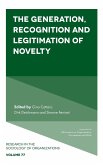Through Jurgen Habermas's detailed criticism of positivist epistemology and methodology and his careful, undogmatic articulation of insights drawn from an immense knowledge of the German philosophical and sociological traditions, he made a lasting contribution to he critical reception of Anglo-American empiricism into German thought.
Critical Theory originated in the perception by a group of German Marxists after the First World War that the Marxist analysis of capitalism had become deficient both empirically and with regard to its consequences for emancipation, and much of their work has attempted to deepen and extend it in new circumstances. Yet much of this revision has been in the form of piecemeal modification. In his latest work, Habermas has returned to the study of capitalism, incorporating the distinctive modifications of the Frankfurt School into the foundations of the critique of capitalism. Drawing on both systems theory and phenomenological sociology as well as Marxism, the author distinguishes four levels of capitalist crisis - economic, rationality, legitimation, and motivational crises. In his analysis, all the Frankfurt focus on cultural, personality, and authority structures finds its place, but in a systematic framework. At the same time, in his sketch of communicative ethics as the highest stage in the internal logic of the evolution of ethical systems, the author hints at the source of a new political practice that incorporates the imperatives of evolutionary rationality.
Hinweis: Dieser Artikel kann nur an eine deutsche Lieferadresse ausgeliefert werden.
Critical Theory originated in the perception by a group of German Marxists after the First World War that the Marxist analysis of capitalism had become deficient both empirically and with regard to its consequences for emancipation, and much of their work has attempted to deepen and extend it in new circumstances. Yet much of this revision has been in the form of piecemeal modification. In his latest work, Habermas has returned to the study of capitalism, incorporating the distinctive modifications of the Frankfurt School into the foundations of the critique of capitalism. Drawing on both systems theory and phenomenological sociology as well as Marxism, the author distinguishes four levels of capitalist crisis - economic, rationality, legitimation, and motivational crises. In his analysis, all the Frankfurt focus on cultural, personality, and authority structures finds its place, but in a systematic framework. At the same time, in his sketch of communicative ethics as the highest stage in the internal logic of the evolution of ethical systems, the author hints at the source of a new political practice that incorporates the imperatives of evolutionary rationality.
Hinweis: Dieser Artikel kann nur an eine deutsche Lieferadresse ausgeliefert werden.








